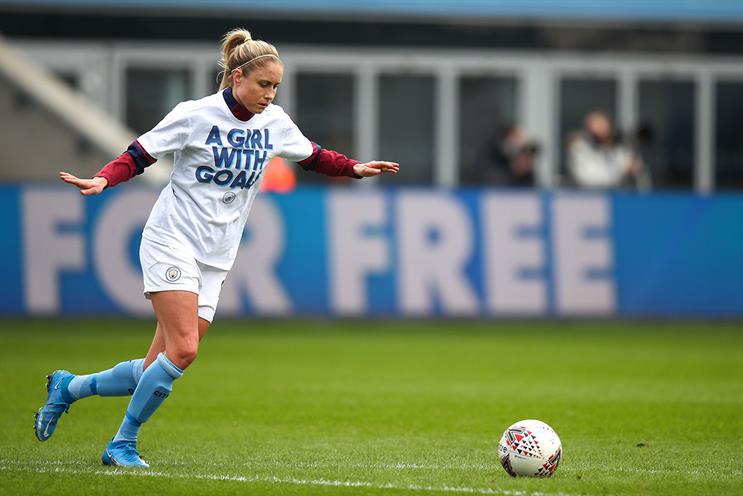
Sky has placed a seven-figure bet that it can drum up advertiser interest in women's football across the next three years.
It and the BBC have become the first broadcasters to pay for TV rights for the FA Women's Super League, which had previously been given for free to BT Sport and the BBC.
Sky will show a minimum of 35 and up to 44 live games per season from the coming 2021/22 season, expected to kick off in September, until the 2024/25 season.
Sky will show matches on Sky Sports Main Event, Sky Sports Premier League and Sky Sports Football. Some matches will also be shown simultaneously on Sky Sports Mix and Sky One, as part of what the FA called a "multimillion-pound agreement".
Sky Sports managing director Rob Webster said the league would get "the full Sky Sports treatment" with lengthy build-ups and reaction to all live matches, plus a daily narrative of the league across Sky Sports News and its digital platforms.
The BBC has committed to air 22 live games per season, with a minimum of 18 matches on BBC One and BBC Two. It previously put games on iPlayer and Red Button.
The league is sponsored by Barclays, which is expected to benefit from any boost to viewership.
The bank became the competition's first-ever title sponsor in 2019, striking a three-year deal reportedly worth more than £10m.
The BBC already has the separate rights to the Uefa Women's Euro 2022 tournament, and Barbara Slater, director of BBC Sport, said the WSL matches would build excitement for the international event.
Kathryn Swarbrick, director of commercial and marketing, FA, said: "This is giving us the foundations to build from, we're going to have a much bigger audience base, which allows us to deliver extra value to our incumbent sponsors and Barclays who has been a brilliant partner in helping us to build the league, and will continue to do so."
This is the first time that the rights to the Barclays FA WSL have been sold separately from the men's game, with clubs in the league receiving a proportion of the revenue.
Swarbrick added: "What we were trying to achieve in this deal was a sweet spot between generating cash to reinvest in building the league and generating big-scale reach and I think that we feel that we've hit that sweet spot.
"The commercial revenues through sponsorship that this opens up for the clubs to drive the financial sustainability of the league is incredibly important and obviously we're yet to realise the benefits of that yet but we foresee that coming quite soon.
"That's incredibly important because the revenue is there to be reinvested in securing world class players, maximising the engagement of the fan base and building the product going forward."



.jpg)
.jpeg)
